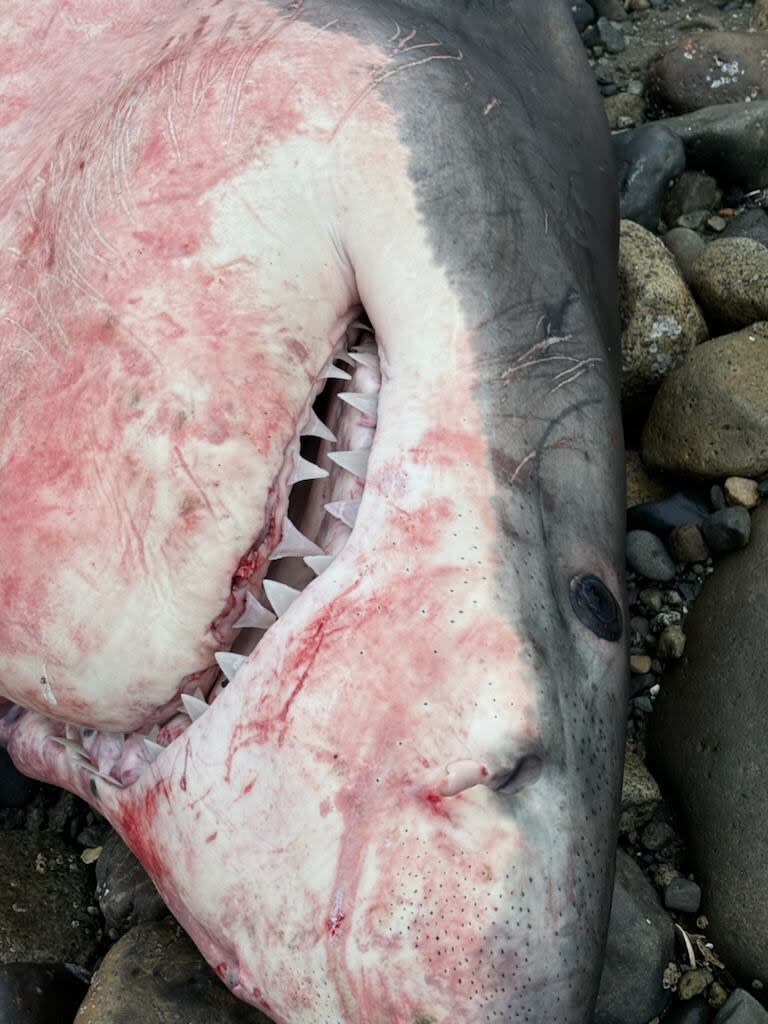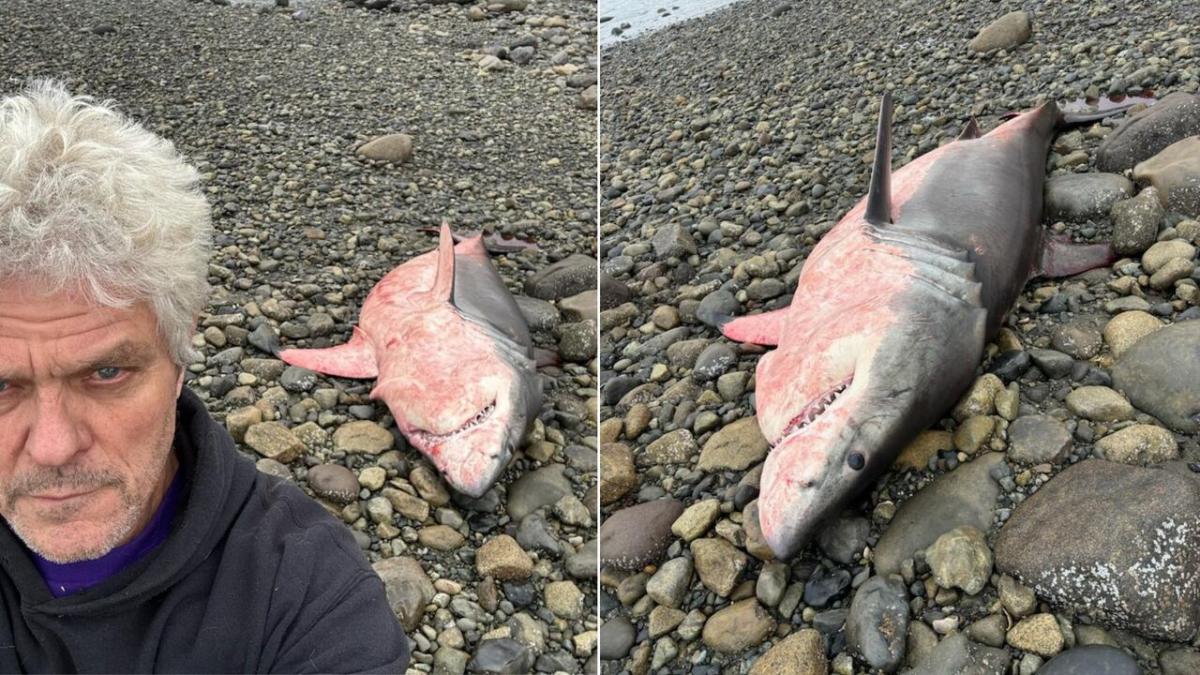A great white shark has been found dead on the coast of Haida Gwaii in northern B.C..
It was discovered by Mike Miles, who says he saw it while boating just south of Tlell, B.C., off Haida Gwaii’s east coast.
“I thought I was seeing a young orca, then thought it was a beaked whale,” he told CBC News via text message. “Then, a great white shark! Cool and a bit sad.”
He reported it to the federal Department of Fisheries and Oceans (DFO), which has confirmed the species, saying it was a male measuring about 13.5 feet or four metres in length. They also found a seal in its gut, “a common prey for this species,” according to spokesperson Athina Vazeos.
Vazeos said samples have been collected for research purposes, including cause of death, and beyond that, they are “letting nature take its course” on what happens to the body.

DFO says it identified the shark by its teeth, as well as its fin and tail. Tissue samples were collected for research purposes. (Mike Miles)
Climate change driving species north
Great white shark sightings in B.C. are rare, as they tend to prefer temperate or subtropical waters.
They are not unheard of, though, and have been seen as far north as the Gulf of Alaska, Vazeos said.
However, researchers have warned that climate change is likely to see more of them make their way into provincial oceans, a message reiterated by the DFO.
“Given climate change, we can expect their occurrences in our waters to increase in frequency in the coming decades,” Vazeos said.
Research from UBC’s Institute for the Oceans and Fisheries has modelled that without dramatic cuts to emissions, waters off B.C. are forecast to be about 1.5 C warmer than today by the year 2050.
According to federal records, there have only been 13 recordings of the species in B.C. in 46 years, though that data was last updated in 2006.
The giant fish are more common in Atlantic Canada but are considered endangered.

